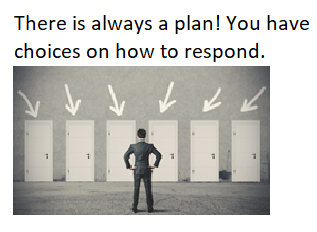 I was outraged. I actually did that thing you see people do in the movies when they are taken aback and surprised. My jaw dropped and my eyes enlarged and I’m pretty sure I forgot to breathe for a sec… In one of my mediation’s recently a participant, let’s call her Pinocchio, lied. No, not a little extension of the truth. No, not an oversight or omission. No, not an – I’m just not conceding fact. A big, fat, genuine, deliberate, barefaced, oversized lie!! An actual untruth and falsehood-laden with emotion. I know it was a lie because of what Pinocchio had explicitly shared in our preparation session. I knew she knew it was a lie, and I knew she knew that I knew it was a lie…. but she delivered it with a straight face!! Of course, she also knew that the other participant knew she was lying. I looked over to their support person in a glance of helplessness, but they were playing poker face. I could feel the heat in me rising. I was outraged! Then my internal mediator’s voice kicked in (bless you internal mediator voice). This was the dialogue in my head:
I was outraged. I actually did that thing you see people do in the movies when they are taken aback and surprised. My jaw dropped and my eyes enlarged and I’m pretty sure I forgot to breathe for a sec… In one of my mediation’s recently a participant, let’s call her Pinocchio, lied. No, not a little extension of the truth. No, not an oversight or omission. No, not an – I’m just not conceding fact. A big, fat, genuine, deliberate, barefaced, oversized lie!! An actual untruth and falsehood-laden with emotion. I know it was a lie because of what Pinocchio had explicitly shared in our preparation session. I knew she knew it was a lie, and I knew she knew that I knew it was a lie…. but she delivered it with a straight face!! Of course, she also knew that the other participant knew she was lying. I looked over to their support person in a glance of helplessness, but they were playing poker face. I could feel the heat in me rising. I was outraged! Then my internal mediator’s voice kicked in (bless you internal mediator voice). This was the dialogue in my head:
Internal mediator voice: “Stop it Zandy. You are just reacting emotionally”.
Me: “But I can’t stand outright lies and struggle with people who deliver them with ease and with the conscious purpose of hurting another. It’s one of my buttons”.
Internal mediator voice: “You are not a participant and your job is to support them to navigate the conversation they need to have. Pick yourself up and get back to supporting them to move through this. If you need to see it differently to work with it, then do it”.

Thank you internal mediator voice!!
That’s what I did. In that moment I decided to treat that lie merely as a behaviour. Similar to other emotional behaviour I see in mediations like tears or swearing, it was an indicator of an issue for them. I started to analyse what it may be indicating. What purpose did it serve for this participant? Once I asked myself that question it was quite clear. She was doing it to provoke the other participant and it probably felt good to harm the other participant in this way. That’s what I needed to know and work through to support both parties. I didn’t need to call out the lie. It’s not what either party needed in this case (it’s just I that wanted to stand up, point and sing “liar liar pants on fire”).

Instead, I held the space and asked: “how are you hoping X responds to that”. This opened up a really healthy dialogue around emotion and that conversation was honest! It got me thinking about lying. Why do people lie? What types of lies are there? What to do about them if they appear during a difficult conversation.
Lying always serves a purpose. Often this is a positive purpose for the individual. It may be because it’s a form of control and telling the truth feels like giving up control. Sometimes it’s because they don’t want to disappoint, on occasion it’s not a lie to them, and other times it’s to avoid punishment or embarrassment. Check out this TED talk https://www.youtube.com/watch?v=eL9HjhDyjlE that talks about lying being a form of communication; we use it to achieve a goal and we lie when the truth doesn’t work. Can’t help but sharing that apparently, we lie more on the phone than we do in email as spoken about in this clip on digital lies https://www.youtube.com/watch?v=nn5k4snG3rA. This is also a great talk on the science of lying https://www.youtube.com/watch?v=MX3Hu8loXTE, it explains the biological basis for lying and how it’s needed to keep the elaborate social structures running smoothly whilst looking out for ourselves.

So, back to difficult conversations and mediation. What can you do if you think someone is lying to you? Firstly, know you have choices and then choose the best choice to suit your situation. Some choices include: do nothing, seek advice from someone else, ask for more information, deflect with humour, call it out, play dumb or respond with a lie in kind.
The good news is apparently we only catch half (53% https://www.apa.org/monitor/julaug04/detecting) of the lies we are told, so most of the time we don’t even know it is happening and most of the time that is probably just fine!
Pinocchio’s mediation actually ended up ok. They had the conversation they needed to have. I don’t envisage a trusting relationship forming but they will get back to a place where they are interacting. After that mediation, I definitely needed a debrief!

JOIN US ON OUR NEXT PUBLIC TRAINING COURSES
AND LET US STRENGTHEN YOUR CONFLICT COURAGE…
Workplace Investigations – Melbourne CBD
1 X DAY: This training will give HR professionals the skills to develop and implement effective plans for conducting a compliant workplace investigation, the strategies to overcome difficulties along the way and the expertise to make findings of fact and subsequent recommendations.
Enquire here for info on our 2019 course dates
Better Conflict – Melbourne CBD
2X DAYS: Facilitate difficult conversations in the workplace! Learn the strategies and practical methods to approach, lead and coach conflict resolution in your workplace. Essential skill-building workshop over 2 days that will refine and increase your skills and mindset.
Enquire here for info on our 2019 course dates
 If you enjoyed reading this post, you will also enjoy the following:
If you enjoyed reading this post, you will also enjoy the following:
1. Understanding Donald Duck
2. Increasing our workplace wisdom
3. Process Driven Emotion



